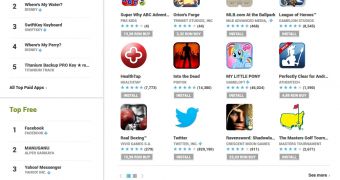Many of the free applications that are available for download on Android devices are bundled with adverts, which allow developers to boost their revenue even if the user doesn’t have to pay for the software itself.
However, paid flavors of these apps remove the ads, so that the user experience is cleaner, yet it seems that the security risks related to privacy remain roughly the same.
A recent report from Bitdefender shows that many paid apps behave similarly to their ad-supported, free counterparts when it comes to sharing user data.
Although they are no longer bundled with aggressive advertisements, the paid flavors of these apps still upload location, unique device ID, and even read contacts, the security firm notes.
By having a closer look at the Google Play’s Top Paid apps (between April 1 and April 7) that also have free versions, Bitdefender concluded that five out of eight applications continue to behave exactly the same even after the user has made the purchase.
“Indeed, the main difference between paid and free versions - at least in terms of privacy - is that the intrusiveness is simply hidden better in paid apps,” the company notes.
For example, Rovio’s Angry Birds Space will track and upload user location, while also broadcasting unique device IDs to third-party servers, even if the user has bought the paid version.
Angry Birds Star Wars, SwiftKey Keyboard, SoundHound, and Cut the Rope behave in a similar manner, it seems.
“A key incentive to buy an app is to get rid of aggressive advertisements. At least in users’ minds, paying for an app should put an end to banners and push notifications,” Bitdefender explains.
“The use of aggressive tracking in paid apps, if it becomes widely known, could devalue paid versions and change consumer behavior.”
The company also notes that users’ privacy might be at higher risk when it comes to less popular applications that could collect even more data, considering that the most popular Android software does so.

 14 DAY TRIAL //
14 DAY TRIAL //